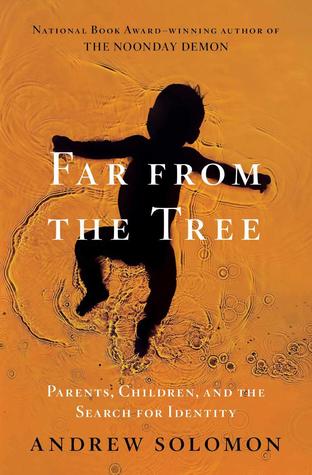More on this book
Community
Kindle Notes & Highlights
Started reading
March 29, 2025
In the gnostic gospel of St. Thomas, Jesus says, “If you bring forth what is within you, what is within you will save you. If you do not bring forth what is within you, what is within you will destroy you.”
There is no contradiction between loving someone and feeling burdened by that person; indeed, love tends to magnify the burden. These parents need space for their ambivalence, whether they can allow it for themselves or not. For those who love, there should be no shame in being exhausted—even in imagining another life.
If you have a child who has committed serious crimes, it is often assumed that you did something wrong as a parent, and people whose children do not commit crimes may condescend accordingly. But there is increasing evidence that some criminality may be hardwired, and that even the most admirable moral instruction may be ineffective in swaying a child who is so predisposed to gruesome acts that, in Clarence Darrow’s phrase, his murderous crime “was inherent in his organism, and came from some ancestor.”
The Spanish philosopher Miguel de Unamuno wrote, “It is not usually our ideas that make us optimists or pessimists, but it is our optimism or pessimism that makes our ideas.”
I have always tried to mend whatever can be fixed and tend to accept only the inevitable.
Nirvana occurs when you not only look forward to rapture, but also gaze back into the times of anguish and find in them the seeds of your joy.
An inability to communicate can result in psychosis and dysfunction; the hard of hearing often have inadequate language, and researchers have estimated that up to one-third of prisoners are deaf or hard of hearing.
Helen Keller is said to have observed, “Blindness cuts us off from things, but deafness cuts us off from people.”
“What we have experienced is so similar: if you are Deaf, you know almost exactly what it is like to be gay, and vice versa.”
Many Deaf people experience deafness not as an absence, but as a presence. Deafness is a culture and a life, a language and an aesthetic, a physicality and an intimacy different from all others.
The Deaf psychologist Neil Glickman has spoken of four stages of Deaf identity. People start out pretending to be hearing, with the discomfort of the only Jew in the country club or the only black family in the suburb. They progress to marginality, feeling they are not a part of either deaf or hearing life. Then they immerse themselves in Deaf culture, fall in love with it, and disparage hearing culture. Finally, they achieve a balanced view that there are strengths in both the deaf and the hearing experience.
“I so much want that stimulating feeling of being productive,” she said. “But I have a disability, and either I can let it destroy me, or I can learn to enjoy my life.
“Burbank became a hotbed of Deaf culture. Even today, you can go into a McDonald’s signing and someone will start interpreting for you.”
“The biggest curse of deafness is illiteracy,”
The shock of schizophrenia is that it manifests in late adolescence or early adulthood, and parents must accept that the child they have known and loved for more than a decade may be irrevocably lost, even as that child looks much the same as ever.
The more likely reality is that schizophrenia, like Alzheimer’s, is an illness not of accrual but of replacement and deletion; rather than obscuring the previously known person, this disease to some degree eliminates that person.
Between 5 and 13 percent of people with schizophrenia commit suicide.
For schizophrenics, the membrane between imagination and reality is so porous that having an idea and having an experience are not particularly different.


